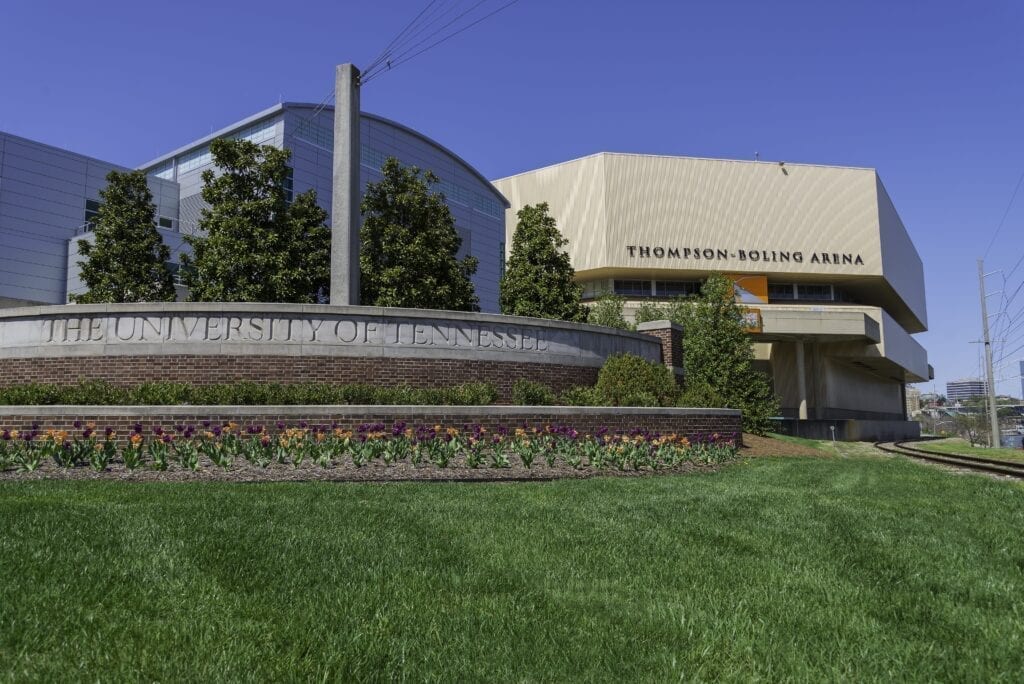Panelists discuss mass incarceration in America, prison conditions in Tennessee
Panelists discussed mass incarceration in America and the efforts to reform what they see as a broken system on Friday, March 3.

//Photo by Ryan McGill
A diverse group of academics and activists traveled to UT to give a panel discussion on mass incarceration and reform in America on Friday, March 3.
The event was sponsored by the Scholars Strategy Network, the Howard J. Baker Center for Public Policy and UT’s departments of Political Science and Sociology.
The panelists represented the fields of religion, political science, legal studies and public policy. One of the panelists, Jeannie Alexander, painted a harrowing picture of prison conditions in the state of Tennessee.
Alexander, a former attorney and prison chaplain who directs No Exceptions Prison Collective, shared the fact that Tennessee is the 10th most incarcerated place in the world. According to Alexander, the private prison industry was “born” in Tennessee.
“We have four private prisons, so the majority of our prisons are state-run, but everything in the prison system is privatized,” Alexander said. “What we’re doing is charging the most to people who can’t afford it.”
The healthcare, food and commissary services in Tennessee state prisons are privately owned and operated.
Alexander spoke on the issue of violence against inmates by Department of Corrections officers and the denial of healthcare to inmates. No Exceptions assisted the American Civil Liberties Union of Tennessee and Disability Rights Tennessee in filing a class action lawsuit against the Tennessee Department of Corrections for denying treatment to inmates with Hepatitis C.
Alexander joined the other panelists in discussing ways she and her organization can fight back against what they view as human rights violations in the prison system.
Panelist Michael Owens, author and professor at Emory University, said that the injustice of mass incarceration can never be truly reformed unless the racial link is addressed.
“We know that the link between black and crime in the American psyche was a core cause of the prison boom,” Owens said. “We can make all sorts of reforms, but we are never addressing that racial link.”
Panelist Ash-Lee Henderson, of the Highlander Center and the Movement for Black Lives, spoke to the idea that abolishing a money bail system would “topple” the criminal justice system.
“Money bail is how they pay for everything,” Henderson said.
Henderson also explained that the activists involved in prison reform need scholars to back them up with research. Panelist Heather Schoenfeld, a professor at Northwestern University, explained that a lack of transparency in the prison system can make studying it difficult.
“Prison conditions right now are as bad as they have been in 25 years, and we have very limited ways of studying that in any kind of systematic way,” Schonfeld said.
For Alexander, the key to reforming the correctional system in Tennessee and beyond is organizing with people inside and outside of prisons. Alexander encouraged the mostly student audience to join in the fight against mass incarceration.
“We very much consider it a war,” she said. “We’re gonna do it with or without you. But we would much rather have you with us.”
Edited by Kaitlin Flippo
Featured Image by Ryan McGill

